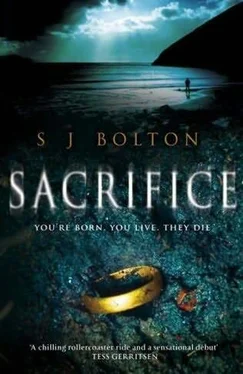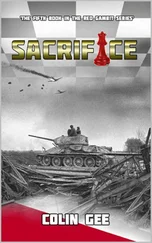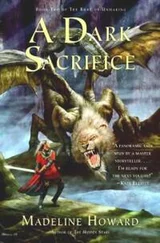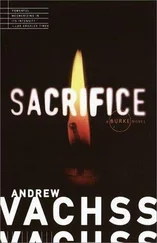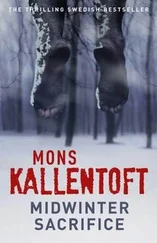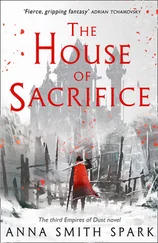S Bolton - Sacrifice
Здесь есть возможность читать онлайн «S Bolton - Sacrifice» весь текст электронной книги совершенно бесплатно (целиком полную версию без сокращений). В некоторых случаях можно слушать аудио, скачать через торрент в формате fb2 и присутствует краткое содержание. Жанр: Триллер, на английском языке. Описание произведения, (предисловие) а так же отзывы посетителей доступны на портале библиотеки ЛибКат.
- Название:Sacrifice
- Автор:
- Жанр:
- Год:неизвестен
- ISBN:нет данных
- Рейтинг книги:5 / 5. Голосов: 1
-
Избранное:Добавить в избранное
- Отзывы:
-
Ваша оценка:
- 100
- 1
- 2
- 3
- 4
- 5
Sacrifice: краткое содержание, описание и аннотация
Предлагаем к чтению аннотацию, описание, краткое содержание или предисловие (зависит от того, что написал сам автор книги «Sacrifice»). Если вы не нашли необходимую информацию о книге — напишите в комментариях, мы постараемся отыскать её.
Sacrifice — читать онлайн бесплатно полную книгу (весь текст) целиком
Ниже представлен текст книги, разбитый по страницам. Система сохранения места последней прочитанной страницы, позволяет с удобством читать онлайн бесплатно книгу «Sacrifice», без необходимости каждый раз заново искать на чём Вы остановились. Поставьте закладку, и сможете в любой момент перейти на страницу, на которой закончили чтение.
Интервал:
Закладка:
I leaned forward in my seat. This had been exercising my mind, whenever it hadn't been totally focused on other things, for the whole afternoon. I should explain that, before choosing obstetrics, I'd toyed with the idea of making a career in pathology and had done some rudimentary training. That was before realizing that the moment of life, rather than that of death, held infinitely more appeal. Typical Tora, my mum had said, always swinging from one extreme to the other. Actually, she'd been hugely relieved. Anyway, thanks to the preliminary training, I had a slightly better than average idea of the decomposition process.
First, the golden rule: decomposition begins at the moment of death. After that, it all depends: on the condition of the body – its size, weight, any wounds or traumas; on its location – indoors or out, warm or cool conditions, exposed to weather or sheltered; on the presence of scavengers or insects; on whether burial or embalming has taken place.
For example, take a corpse abandoned in woodland in a temperate climate such as that of the British Isles. Upon death, the body's internal chemicals and enzymes will combine with bacteria to begin breaking down tissue.
Between four and ten days after death, the body will start to putrefy. Fluid is released into body cavities and various gases – foul- smelling to humans but as tempting as a gourmet dinner to insects – are produced. Gas pressure inflates the body whilst young mag- gots rampage their way through, spreading bacteria and tearing through tissue.
Between ten and twenty days after death, a corpse reaches the stage of black putrefaction. The bloated body collapses, its exposed parts turn black and it gives off a strong smell of decay. Body fluids will drain into the surrounding soil and, by this stage, several generations of maggots and other larvae will have enjoyed a spell of residence.
By fifty days, most of the remaining flesh will have been removed, the body will have dried out and butyric acid will give it a cheesy smell. Parts in contact with the ground will ferment and grow mould. Beetles will replace maggots as the primary predator and the cheese fly makes a late arrival to finish off any remnants of moist flesh.
A year after death, the body will have reached the stage of dry decay, with only bones and hair remaining. Eventually, the hair too will disappear, eaten by moths and bacteria, leaving only the skeleton.
That's one example. A body frozen in Alpine ice, neither exposed to sunlight nor torn apart by glacier movement, might remain perfect for hundreds of years. On the other hand, one placed in an above-ground vault during a New Orleans summer would be expected to disappear almost completely within three months.
And then you have peat.
Stephen Renney was talking. 'Yes, exactly: when? When did she die? When was she buried? Million-dollar questions, I expect.'
Behind me I heard a sharp intake of breath and felt a stab of sympathy with the detective sergeant. Stephen Renney seemed to be enjoying himself just a little too much. I didn't like it and neither, I guessed, did she.
'Very interesting questions, anyway, because the normal process of decay is completely thrown into the air when you bring peat into the equation. You see, in a typical peat bog – especially one on these islands – you have the combination of cold temperature, the absence of oxygen – which, as we know, is essential for most bacteria to grow – and we also have the antibiotic properties of organic materials, including humic acids, in the bog water.'
'I'm not sure I'm following you, Mr Renney,' said DS Tulloch. 'How can organic materials slow down decomposition?'
Renney beamed at her. 'Well, take sphagnum moss, for example. When the putrefactive bacteria secrete digestive enzymes, the sphagnum reacts with the enzymes and immobilizes them in the peat. The process is brought to an abrupt halt.'
'You're very well informed, Stephen,' said Gifford.
I swear I saw Stephen Renney blush at that point.
'Well, the thing is, I'm a bit of an archaeologist in my spare time. Sort of an amateur Indiana Jones. Part of the reason why I took this job. The wealth of sites on these islands is, well… anyway, I've had to learn quite a bit about the nature of peat bogs. Did a bit of reading up when I first came here. Every time there's a dig I go along and volunteer.'
I'd risked a sneaky glance back at DS Tulloch, wanting to see how she took the comparison of the mouse-like Stephen Renney with Harrison Ford. There was no hint of amusement on her face.
'I'm sure Miss Hamilton will correct me if I step out of line,' said DI Dunn, making me jump, 'but nail varnish was around for most of the last century. She could still have been down there for decades?'
Tulloch threw a quick glance at her boss, three tiny frown lines creasing the skin between her eyebrows.
'Well, no, I don't think so,' said Renney, for all the world as though he were apologizing. 'You see, although soft tissue can be very well preserved by acid peat bogs, the same thing just doesn't apply to bone or teeth. In a peat bog, the inorganic component of the bone, the hydroxyapatite, is dissolved away by the humic acids. What's left behind is the bone collagen, which then shrinks into itself and deforms the original outline of the bone. Another thing that happens is that the finger and toenails,' he glanced at me, 'although preserved in themselves can separate from the body. I've taken bone samples and examined her teeth and I can say with some confidence that there is no trace of this process happening. Her nails are all intact. On the strength of that alone, I'd say she can't have been buried for more than a decade, probably fewer than five years.'
'Looks like you could be a suspect after all, Miss Hamilton,' drawled Gifford, behind me. I decided to ignore that.
Renney looked up at him in alarm. 'No, no, I really don't think so.' He looked down again and shuffled through his notes. 'There's a bit more I have to tell you. Ah yes, when I heard the body was coming I ran a quick Internet check on Miss Hamilton's village. Tresta, I think it's called?'
He waited for confirmation. I nodded.
'Right. Well, I wanted to find out if the area has a history of bog finds. It hasn't, as a matter of fact, but I did find something very interesting.'
He waited for us to respond. I wondered which of us would. I really didn't feel like talking myself.
'What would that be?' asked Gifford, impatient now.
A massive sea storm took place in the area in January 2005. Severe gale-force winds and three very high tides. The tidal defences – such as they are – were breached and the whole area was flooded for several days. The village had to be evacuated and dozens of livestock were lost.'
I nodded. Duncan and I had been told about it when we bought the house. It had been described as a one-in-a-thousand-year event and we hadn't let it worry us.
'How would that be relevant?' I asked.
'If a bog gets flooded,' replied Renney, 'by either sea water or very heavy rain, its tissue-preserving abilities become impaired. Soft tissue, flesh, internal organs start to deteriorate and skeletonization kicks in. If our subject was in the ground when that storm occurred, I would expect her to be in a much poorer condition than she is.'
'Two and a half years,' mused Gifford. 'Starting to narrow the field down.'
'This will all have to be confirmed,' said Dunn.
'Of course, of course,' gushed Renney. 'I also had a look at her stomach contents. She'd eaten, a couple of hours before she died. There were traces of meat and cheese, some possible remains of grains, maybe from wholemeal bread. Also, something else, that took me a while to identify.'
He paused; no one spoke but this time our unwavering attention must have been enough for him.
Читать дальшеИнтервал:
Закладка:
Похожие книги на «Sacrifice»
Представляем Вашему вниманию похожие книги на «Sacrifice» списком для выбора. Мы отобрали схожую по названию и смыслу литературу в надежде предоставить читателям больше вариантов отыскать новые, интересные, ещё непрочитанные произведения.
Обсуждение, отзывы о книге «Sacrifice» и просто собственные мнения читателей. Оставьте ваши комментарии, напишите, что Вы думаете о произведении, его смысле или главных героях. Укажите что конкретно понравилось, а что нет, и почему Вы так считаете.
